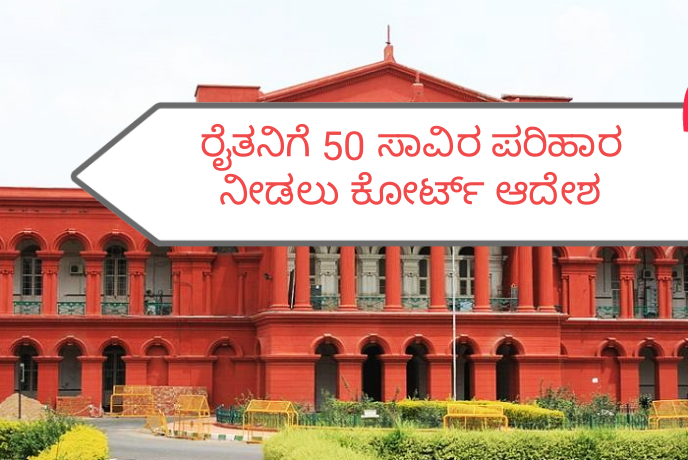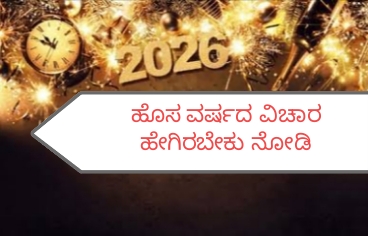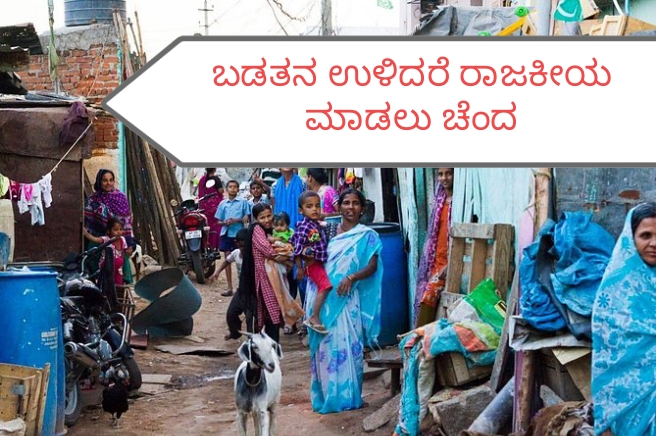Basics of Python
Libraries are important:
import json
import csv
import ast
import sys
import time
import os
from collections import defaultdict
from datetime import dateti
import subprocess
import signal
import shutil
import bz2
import re
import urllib.parse
import requests
Dictionay methods:
d = dict() # It creates dictionary
d['name']='Anjaneya' # Assigns value to dictionary
print(d) # prints dictionary
d.update({'age':30}) # update dictionary
print(d)
d2={'city':'haveri'} # create new dictionary
d.update(d2) #append dictionary
print(d)
dv = d.pop('age') # removes keys values and returns value
print("dv",dv)
print(d)
print(d.get('name','None')) # retrievs values
del d['name'] #delete keys, does not return values
print(dv)
d['name']='anjaneya'
print(d)
dv = d.popitem() # removes last inserted key values and returns key, value ex;('name':'Anjaneya')
print(dv)
d[(1,2)] = 'kk' # tuple as key, it not allowed list&ditionary as key
print(d)
d[2]='rr'
print(d)
d[3]={'a':10,'b':25}
print(d)
d.setdefault('name','Anji') #It returns values if key exits #else it add key to dictionay with default values.
for k,v in d.items(): # iterate dictioanry and checks nest #dictionary
if isinstance(v,dict):
print(v)or methods Retrieve and use methods
******** Programs********
s = "the sky is blue"
# Output: "blue is sky the"
ss = s.split(" ")
x = [ss[-i] for i in range(1,len(ss)+1)]
print(x)
def flatten(lst):
result = []
for item in lst:
if isinstance(item, list):
result.extend(flatten(item))
else:
result.append(item)
return result
ip = [[[1, 2, 3], [4, 5]], 6]
op = flatten(ip)
print(op) # Output: [1, 2, 3, 4, 5, 6]
def interleave(word1, word2):
result = ""
len1, len2 = len(word1), len(word2)
max_len = max(len1, len2)
for i in range(max_len):
if i < len1:
result += word1[i]
if i < len2:
result += word2[i]
return result
# Example usage:
word1 = "abc"
word2 = "pqr"
output = interleave(word1, word2)
print(output) # Output: "apbqcr"
def findLeastNumOfUniqueInts(arr, k):
frequency = {}
# Count the frequency of each element
for num in arr:
frequency[num] = frequency.get(num, 0) + 1
# Sort elements based on frequency
sorted_nums = sorted(frequency.items(), key=lambda x: x[1])
# Remove elements to meet the k requirement
count = len(sorted_nums)
for num, freq in sorted_nums:
if k >= freq:
k -= freq
count -= 1
else:
break
return count
# Example usage:
arr = [4,3,1,1,3,3,2]
k = 3
print(findLeastNumOfUniqueInts(arr, k)) # Output: 2
pairs={"}":"{","]":"[",")":"("}
stack = []
def check(str):
for char in str:
if char in pairs.values():
stack.append(char)
elif char in pairs.keys():
if pairs[char] == stack[-1]:
stack.pop()
else:
return "Unbalanced"
else:
continue
if len(stack)==0:
return "Balanced"
print(check("[{()}]"))
class Node:
def __init__(self,data):
self.data = data
self.next = None
class Linked_List:
def __init__(self):
self.head = None
def append(self,data):
new_node = Node(data)
if self.head == None:
self.head = new_node
return
last_node = self.head
while last_node.next:
last_node = last_node.next
last_node.next = new_node
def disp(self):
current_node = self.head
while current_node:
print(current_node.data,end="->")
current_node = current_node.next
print()
def prepend(self,data):
new_node = Node(data)
new_node.next = self.head
self.head = new_node
ll = Linked_List()
ll.append(5)
ll.append(6)
ll.append(7)
ll.prepend(4)
ll.disp()
# print longest word from given string
str = "Anjaneya Basappanava python developer"
words = str.split()
print(words)
for i in range(len(words)-1):
for j in range(i+1,len(words)):
if len(words[i])<len(words[j]):
t = words[i]
words[i]=words[j]
words[j]=t
print(words[1])
def count_characters(string):
# Initialize counts
digit_count = 0
alphabet_count = 0
symbol_count = 0
# Iterate through each character in the string
for char in string:
# Check if the character is a digit
if char.isdigit():
digit_count += 1
# Check if the character is an alphabet
elif char.isalpha():
alphabet_count += 1
# If not a digit or alphabet, consider it as a symbol
else:
symbol_count += 1
return digit_count, alphabet_count, symbol_count
# Test the function
input_string = input("Enter a string: ")
digit_count, alphabet_count, symbol_count = count_characters(input_string)
print("Digits:", digit_count)
print("Alphabets:", alphabet_count)
print("Symbols:", symbol_count)
n = 154
rn=0
while n>0:
digit = n%10
rn = rn*10+digit
n //=10
print(rn)
def square_generator(input_list):
for num in input_list:
yield num ** 2
# Example usage:
my_list = [1, 2, 3, 4, 5]
result_generator = square_generator(my_list)
# Access squares one by one
for square in result_generator:
print(square)
class ParentClass:
def __init__(self, name):
self.name = name
def say_hello(self):
print(f"Hello from {self.name}")
class SubClass(ParentClass):
def __init__(self, name, age):
# Call the constructor of the parent class
super().__init__(name)
self.age = age
def greet(self):
# Call the method of the parent class
super().say_hello()
print(f"{self.name} is {self.age} years old")
# Create an instance of the subclass
obj = SubClass("Alice", 25)
# Call the method of the subclass
obj.greet()
# Online Python - IDE, Editor, Compiler, Interpreternext
class Node:
def __init__(self,data):
self.data = data
self.next = None
class L_list:
def __init__(self):
self.head = None
def create(self,data):
node = Node(data)
if not self.head:
self.head = node
return
current = self.head
while current.next:
current = current.next
current.next=node
def disp(self):
elements = []
current = self.head
while current:
elements.append(current.data)
current = current.next
print("-->".join(map(str,elements)))
linked = L_list()
linked.create(1)
linked.create(2)
linked.create(3)
linked.disp()
A = ["Anjaneya","sanjane"]
output = {}
for n in A:
d={}
for c in n:
d[c]=n.count(c)
output[n] = d
for k,v in output.items():
print(k,v)
find prime number list using class concept
class prime_class:
def __init__(self,start,end):
self.s = start
self.e = end
def find_prime(self):
l=[]
for i in range(self.s,self.e):
for j in range(2,i):
if i%j == 0:
break
else:
l.append(i)
return l
if __name__ == "__main__":
obj = prime_class(2,100)
r = obj.find_prime()
print(r)
def O_list(A):
l1=[]
for n in A:
d={}
for l in n:
d[l]=n.count(l)
# print(n,":",d)
l1.append(d)
return l1
if __name__ == "__main__":
A = ["Anjaneya","sanjane",]
r = O_list(A)
for i in r:
print(i)
ip = [63,23,41,21]
# op = [9,5,5,3]
op=[]
for i in ip:
si = str(i)
s = int(si[0])+int(si[1])
op.append(s)
print(op)
or
ip = [63,23,41,21]
# op = [9,5,5,3]
t = []
for n in ip:
sum=0
while n>0:
sum += n%10
n//= 10
t.append(sum)
#find sum of dictionary values
d={'a':2,'b':5}
val=d.values()
s=sum(val)
print(s)
#or
d={'a':2,'b':5}
val=d.values()
s=0
for i in val:
s+=i
print(s)
# Python code to illustrate
# reduce() with lambda()
# to get sum of a list
from functools import reduce
li = [5, 8, 10, 20, 50, 100]
sum = reduce((lambda x, y: x + y), li)
print (sum)
# or
l1=list([i for i in range(10,21)])
print(l1)
from functools import reduce
sum = reduce((lambda x,y : x+y),l1)
print(sum)
# dictionary
cities = {'San Francisco': 'US', 'London': 'UK',
'Manchester': 'UK', 'Paris': 'France',
'Los Angeles': 'US', 'Seoul': 'Korea'}
a = {}
for key, value in cities.items():
a.setdefault(value,[]).append(key)
print(a)
########OR#####
o={}
for k, v in cities.items():
if v in o:
o[v]=[o[v],k]
else:
o[v]=k
print(o)
=>o/p {'US':['San Francisco', 'Los Angeles'], 'UK':[,], ...}
#access element from dictionary
d={1:'a',2:'b',3:'c'}
d2={1:'d',2:'e'}
a=list(d.values())[0]
b=list(d2.values())[-1]
print(a,b)
d={1:'a',2:'b',3:'c'}
d2={1:'d',2:'e'}
c=[]
l=len(d2)
print(l)
for i in range(len(d)):
if i < 1:
#print(d[1])
c.append(d[1])
for j in range(0,len(d2)):
if len(d2):
print(j)
print(d2[1])
c.append(d2[1])
print(c)
#convert dict to list
l1=[1,5,6,8]
l2=[4,2,9,3]
l3=dict({l1[i]:l2[i] for i in range(len(l1))})
print(l3)
l4=list(l3.items())
print(l4)
#access elements from dictionary
a=list({1:'a',2:'b'}.values())[0]
b=list({1:'c',2:'d'}.values())[-1]
c=a,b
l1=[]
l1.append(c)
print(l1)
##sort given list using bobble sort
a=[4,8,1,3,9]
b=[7,5,2,10]
a.extend(b)
l=len(a)
for i in range(l-1):
for j in range(i+1,l):
if a[i]>a[j]:
t=a[i]
a[i]=a[j]
a[j]=t
print(a)
time complexity of bubble sort is O(n).
#binary search
def bin_search(arr,low,high,x):
if high>low:
mid=int((low+high)/2)
if arr[mid]==x:
return mid
elif arr[mid]>x:
return bin_search(arr,low,mid-1,x)
else:
return bin_search(arr,mid+1,high,x)
else:
return -1
arr=[1,20,60,70,80,10]
arr.sort()
x=80
result=bin_search(arr,0,len(arr),x)
if result==-1:
print("element is not found")
else:
print("the given element found at:",str(result))
#program to find minimum values from pair of given list
# o/p: mimimum diff is :1 and pair is: (9,10)
def findMin(l):
diff=10**20
n=len(l)
for i in range(n-1):
for j in range(i+1,n):
if abs(l[i]-l[j])<=diff: # abs() it converts negative value to positiver ex: -54 as 54
diff=abs(l[i]-l[j])
+ a=(l[i],l[j]) # pair values
return diff,a
l=[4,8,1,9,3,10]
res=findMin(l)
print("Minimum difference is:",res[0],"and pair is:",res[1])
# program for make capital of first letter of each words
str="my name is shruti" #o/p My Name Is Shruti
st=str.split()
s=""
for i in st:
#print(i.capitalize(),end=" ")
for j in range(len(i)):
if j==0:
s=s+i[j].upper()
else:
s=s+i[j]
s=s+" "
print(s)
#or using ASCII
str="my name is Anjaneya"
st=str.split()
s=""
for i in st:
#print(i.capitalize(),end=" ")
for j in range(len(i)):
if j==0:
a=ord(i[j]) # get ASCII value
p=a-32
#p=chr() # print character for ASCII value
s=s+(chr(p))
else:
s=s+i[j]
s=s+" "
print(s)
#program for string "8a7b2c917d90" and o/p: 8a:7b:2c:91:7d:90
st="8a7b2c917d90"
ss=str(st)
result=""
for s in range(0,len(ss)):
if s%2!=0:
if s==len(ss)-1:
result=result+ss[s]
else:
result=result+ss[s]+":"
else:
result=result+ss[s]
print(result)
#s="Apple Mango Java Mango Python Apple Django Mango Html"
s="Apple Mango Java Mango Python Apple Django Mango Html"
from collections import Counter
str=s.split()
d={}
d=(dict(Counter(str)))
max_key=max(d,key=d.get)
print(max_key)
# try except which exception will execute first
def AdivB(a , b):
try:
c = ((a+b) // (a-b))
except Exception as e: #- (1)
print(e)
except ZeroDivisionError: # - (2)
print ("a/b result in 0")
AdivB(1,1)
#o/p : interger division
list = ["apple", "banana", "cherry", "kiwi", "mango"]
newlist=[i for i in list if "a" in i ]
print(newlist)
#find the sum of cubes of given number
a=int(input("enter the number:"))
s=0
for i in range(1,a+1):
q=i**3
s+=q
print(q,i)
print(s)
# find the ultiplication table using lambda
x= lambda x,y : x*y
n=10
for i in range(1,n+1):
for j in range(2,4):
r=x(i,j)
print(j,'*',i,'=',r,end=' ')
print()
#swap the list revese list
def swap(n):
l=len(n)
s=n[0]
n[0]=n[l-1]
n[l-1]=s
print(n)
n=[1,2,3,4]
swap(n)
#o/p:[4, 2, 3, 1]
#remove the enterd numbers from list
def repeat(inp):
#n=[1,2,3,2,4]
for i in range(len(n)):
if n[i] == inp:
c = i
n.pop(c)
print(n)
n=[1,2,3,2,4]
inp=int(input("Enter the number:"))
repeat(inp)
# copying list l1=l2, if changes to l2 it appects to l1 both stores in same id
def Clonning(l1):
l2=l1
l2.append(6)
l2.pop(3)
print("After Clonning \n",l2)
print(l1)
print(id(l1))
print(id(l2))
# driver code
l1=[4,8,10,3,18]
Clonning(l1)
# zip The zip() function returns a zip object, which is an iterator of tuples where the first item in each passed iterator is paired together
a=[1,2,3,4,1]
s=['q','w','e','r','f']
x=zip(a,s)
z=[i for i in sorted(x)]
print(z)
# o/p : [(1, 'f'), (1, 'q'), (2, 'w'), (3, 'e'), (4, 'r')]
# remove duplicates from list
p=[6,2,3,1,2,4,5,6]
l1=[]
for i in p:
if i not in l1:
l1.append(i)
# sort the list
z=sorted(l1)
print(z[-3]) # 3rd greatest number
print(z)
#find minimum and maximum usning min and max function
q=[1,2,5,8,6]
d=min(q)
mx=max(q)
s=max(q)-1
print("min:",d)
print("max:",mx)
print("second large:",s)
#print first and last charaters are same in a list
def number(n):
c=0
for n in n:
if n[0]==n[-1]:
c=c+1
print(n,c)
n=['1231','asda','1234','fdcf']
number(n)
""" o/p :
1231 1
asda 2
fdcf 3 """
#print last element from list
def last(n):
return n[-1]
print(last([(2, 5), (1, 2), (4, 4), (2, 3), (2, 1)]))
#o/p : (2, 1)
# sort the list
def sort_list(tuple):
return sorted(tuple)
print(sort_list([(2, 5), (1, 2), (4, 4), (2, 3), (2, 1)])
# return words from list with length is > 4
l=['asd','qwe','aswqq','wqer','ddddsdd']
n=4
for i in l:
if len(i)>4:
print(i)
#o/p: aswqq ,ddddsdd
l=["anjaneya","sanjay","shivappa"]
x=filter(lambda x: int(len(x)<8), l)
print(list(x))
#Enumerate() method adds a counter to an iterable and returns it in a form of enumerating object.
#This enumerated object can then be used directly for loops or converted into a list of tuples using the list() method.
# changing index and printing separately
l1 = ["eat", "sleep", "repeat"]
for count, ele in enumerate(l1, 100): # starting index
print (count, ele)
#Shuffle a list (reorganize the order of the list items):
import random
l=[2,3,4,5,6,7,8,9]
random.shuffle(l)
print(l)
#******* Armstrong number
#Input : 153
#Output : Yes
#153 is an Armstrong number.
#1*1*1 + 5*5*5 + 3*3*3 = 153
n=int(input("Enter the number:"))
a=str(n)
b=len(a)
c=0
for i in a:
j=int(i)
c=c+j**b
if c==n:
print("Number is armstrong")
else:
print("not armstrong")
#prime or not
n=int(input("Enter the number:"))
if n>1:
#iterate 2, to n/2
for i in range(2,int(n/2)+1):
if n%i==0:
print("num is npt prime")
break
else:
print("num is prime",n)
else:
print("not prime")
# 1-100 prime
for i in range(2,100):
for j in range(2,int(i/2)+1):
if i%j==0:
break
#print(i, end=",")
else:
print(i,end=" ")
#factorial
n=5
s=1
for i in range(1,n):
s+=s*i
print(s)
# factorial using recursive
def fact(n):
if n==0:
result=1
else:
result=n*(fact(n-1))
return result
print(fact(5))
#lambda to lower case
x=lambda x: x.lower()
print(x("ANJANEYA"))
#type error tuple insertion
a=(10,50,1)
a[0]=1
print(a)
# print duplicate
number=[1,10,23,7,10,3,3,90]
dp=[]
for i in number:
if i not in dp:
dp.append(i)
else:
print(i, end=",")
#find the count of the words in a list
n=['varsa','shruti','varsa']
output=[]
for i in n:
p= i,n.count(i)
if p not in output:
output.append(p)
print(output)
#count the upper case and lower case in a string
s="My Name Is Anjaneya"
v=s.replace(" ",'')
c=0
k=0
print(v)
for i in v:
if i.isupper():
c+=1
else:
k+= 1
print("upper letters:",c)
print("Lower letters:",k)
#max_difference
input_data=[1,4,7,19,20,4]
max=max(input_data)
min=min(input_data)
d=max-min
print("The max_difference is (max-min)=",d)
#searching mobile number
import re
input="mobile:8867224452"
d=re.search('\d{10}',input)
d=d.group(0)
print(d)
#count the consecutive number from a string
a="1s23fgh789gh76"
c=0
for i in range(len(a)+1):
if i < len(a)-1:
if a[i].isdigit() and a[i+1].isdigit():
print(a[i],a[i+1],"---")
c=c+1
print("total count:",c)
#count the consecutive number from a string
import re
s='1sd34dd23uh43'
z=re.findall('\d{2}',s)
print(z)
#adding list
a=['bana','app','oran']
b=['na','le','ge']
c=[]
for x,y in zip(a,b):
completed=x+y
c.append(completed)
print(c)
# o/p: ['banana', 'apple', 'orange']
# remove duplicate words from list
a="hello world and practice make perfect and hello world again"
s=a.split(" ")
print("s= ",s)
d=set(s)
print("d= ",d)
l=" ".join(sorted(d))
print("l=",l)
list1=[10,5,2,-1,100,0]
print(sorted(list1))
#string is palidrome or not
def isPalidrome(s):
for i in range(0,int(len(s)/2)):
if s[i]!=s[len(s)-i-1]:
return False
return True
s="malayalam"
ans=isPalidrome(s)
if ans==1:
print("is palidrom")
else:
print("Not palidrom")
### other method
s="malayalam"
rs=s[::-1]
if s==rs:
print("yes, it is palidrome")
else:
print("No, its not a palidrome" )
## Generating dictionary with alphabets as keys and prime numbers as values
num=int(input("Enter last number:"))
listt=[]
for i in range(2,num):
for n in range(2,i):
if i%n==0:
break
else:
listt.append(i)
print(listt)
d={chr(x):" " for x in range(ord('a'), ord('z')+1)}
print(d)
#factorial of given number
num=int(input("Enter The Number:"))
factorial= 1
if num<0:
print("No factorial for given number")
elif num==0:
print("factorial of 0 is 1")
else:
for i in range(1, num+1):
factorial=factorial*i
print("factorial of", num,"is ", factorial)
#fibbonacci number
nterm=int(input("Enter the input:"))
n1=0
n2=1
count=0
if nterm<=0:
print("Enter positive number")
else:
print("fibbonacci of",nterm,"is :")
while count<nterm:
print(n1,end=" ")
nth=n1+n2
n1=n2
n2=nth
count=count+1
# Extracting_string_from_nested_list
test_list = [[5, 6, 3], ["Gfg", 3, "is"], [9, "best", 4]]
print("the original list:" + str(test_list))
res=[ele for sub in test_list for ele in sub if isinstance(ele,str)] #The isinstance() function returns True if the specified object is of the specified type, otherwise False.
print("The string instances:" + str(res))
#Filter fuction
l=[0,10,15,20,25,30]
l1=list(filter(lambda x:x%2==0,l))
print(l1)
##Map fundtion
# l=[0,1,2,3,4]
# l1=list(map(lambda x:x*x,l))
# print(l1)
##Reduce function
# import functools
# l=[10,20,30,40]
# l1=functools.reduce(lambda x,y:x*y,l)
# print(l1)
l=[2,4,3,7,3,8,5,4]
from collections import Counter
x=Counter(l)
print("x=",x)
l1=[]
# The items() method returns a view object.
#The view object contains the key-value pairs of the dictionary, as tuples in a list.
for i in x.items():
if i[1]==1:
l1.append(i[0])
print("after removing duplicates:",l1)
##get odd numbers using list comprehension
l=[1,2,3,4,5,6,7,8,9]
print([i for i in l if i%2!=0])
#create class and object
class A:
def __str__(self):
return("Anjaneya")
a=A()
print(a)
##Anagram using Sorted
def check(s1,s2):
if(sorted(s1)==sorted(s2)):
print("strings are Anagram")
else:
print("strings are not Anagram")
s1="listen"
s2="silent"
check(s1,s2)
# program to count
Input = [3,4,3,5,3,6]
from collections import Counter
#Output{3:3,4:1,5:1,6:1}
d={}
d=dict(Counter(Input))
print(d)
# Anagram using Counter counter method
from collections import Counter
def checker(s1,s2):
if (Counter(s1)==Counter(s2)):
print("Strngs are Anagram")
else:
print("Strings are not Anagram")
s1="silent"
s2="listen"
checker(s1,s2)
#Print name 10 times without iterator
def display(n):
if n==0:
return " "
else:
print("Anjaneya")
return display(n-1)
display(10)
# Or
s="anjaneya"
print(s*10)
#age calculator
def ageCalulator(y,m,d):
import datetime
today=datetime.datetime.now().date()
dob=datetime.date(y,m,d)
age=int((today-dob).days/365)
print(age)
ageCalulator(1991,7,31)
#Input:[1,2,3,4,5] Output:[1,4,3,16,5]
l1=[1,2,3,4,5]
l2=[i*i if i%2==0 else i for i in l1]
print(l2)
#Number of occurance
a="hello"
b="l"
c=0
for i in range(len(a)):
if a[i]==b:
c=a.count(a[i])
print(c)
##Alternate Lowrcase string to Uppercase
#i/p: Anjaneya, O/p: AnJaNeYa
str="Anjaneya"
s=""
for i in range(len(str)):
if i%2==0:
s=s+str[i].upper()
else:
s=s+str[i].lower()
print(s)
#Count Vowels in string and print in dictionary format
str="shruti sattigeri"
d={}
v=['a','e','i','o','u']
count=0
for s in str:
if s in v:
count+=1
d[s]=d.get(s,0)+1 #The get() method returns the value of the item with the specified key.
#print(s)
print("count:",count)
print("d=",d)
#Generate prime numbers from 10 to 50
first=10
last=50
for i in range(first, last+1):
for j in range(2,i):
#print(i,j)
if i%j==0:
break
else:
print(i)
print(list(filter(lambda i:i%2==0, range(1,20))))
#convert Roman number to integers
dict={'i':1,'v':5,'l':50,'c':100,'x':10}
input='xxi'
o=dict['x']+dict['x']+dict['i']
print(o)
#other methoddict={'i':1,'v':5,'x':10,'l':50,'c':100}
input='xxi'
s=0
for i in input:
for j in dict.items():
if j[0]==i:
s=s+j[1]
print(s)
##Print first non repeating character
str="abigmango"
d={}
count=0
for i in str:
d[i]=d.get(i,0)+1
print(d)
for key,value in d.items():
if value==1:
print(key,end=" ")
break
#print 1-50 prime number
for i in range(2,50):
for j in range(2,int(i/2)+1):
if i%j == 0:
break
else:
print(i, end=",")
# if user enters name it disaplay corresponding age
arr = [
{'id': 1, 'name': "test1", 'age':22}
# {id: 2, name: "test2", age:23},
# {id: 3, name: "test3", age:24},
# {id: 4, name: "test4", age:25},
# {id: 5, name: "test5", age:26}
]
input=input("enter the name:")
for i in arr:
# print(i['name'])
if input==i['name']:
print(i['age'])
#find the pair of numbers pair sum=16
arr=[2,4,8,10,7,9,5,6]
sum=16
for i in range(len(arr)-1):
for j in range(i+1,len(arr)):
if arr[i]+arr[j]==sum:
print(arr[i],arr[j])
############
inter 18/9/22
#Input: Hello World GFG Welcomes You
#Output:You semocleW GFG dlroW Hello
input=input("enter string").split()
print(input)
revers_input=input[::-1]
print(revers_input)
rs=""
for i in range(len(revers_input)):
rs+=" "
if (i==0) or (i==int(len(revers_input)-1)):
rs+=revers_input[i]
else:
a=revers_input[i]
rr=a[::-1]
rs+=rr
print(rs)
cities = {'San Francisco': 'US', 'London':'UK',
'Manchester':'UK', 'Paris':'France',
'Los Angeles':'US', 'Seoul':'Korea'}
output = {}
for key,val in cities.items():
print(val)
if val in output:
output[val] = [output[val],key]
else:
output[val] = key
print(output)
def flatten(lst):
result = []
for item in lst:
if isinstance(item, list):
result.extend(flatten(item))
else:
result.append(item)
return result
ip = [[[1, 2, 3], [4, 5]], 6]
op = flatten(ip)
print(op) # Output: [1, 2, 3, 4, 5, 6]
 Share on WhatsApp
Share on WhatsApp










